Newsletter 05 Dec 2022
Environment: What’s Up in GENeva | 5 – 11 December 2022

The Geneva Environment Network’s weekly newsletter includes the latest information on the global environmental agenda, main events, job vacancies, learning opportunities, as well as other useful resources and updates. Stay tuned and follow us also on Twitter, Facebook, LinkedIn, Youtube, or visit our website regularly for additional updates.
Image of the week | Experts shared insights on the relevance of international standards to support policy framework at the event “Standards and the Triple Planetary Crisis“. Recording and summary available online. ©UNEP/GEN Marina Garlatti, 1 December 2022.
Chemicals and Waste Negotiations: Eyes on 2023
Following an important year for the governance of chemicals, waste and ending pollution, the Geneva chemicals and waste cluster is gearing up for another year with major milestones. In 2023, negotiations on the topic include:
- 1st Session of the Open Ended Working Group (OEWG1) of the Science-Policy Panel to contribute further to the sound management of chemicals and waste and to prevent pollution | Bangkok, Thailand, January-February 2023
- 13th meeting of the Open-ended Working Group of the Basel Convention (OEWG-13) | Geneva, Switzerland, February 2023
- Resumed session of the 4th meeting of the Intersessional Process considering the Strategic Approach and sound management of chemicals and waste beyond 2020 | Nairobi, Kenya, February-March 2023
- 16th Meeting of the COP to the Basel Convention, the 11th meeting of the COP to the Rotterdam Convention and the 11th Meeting of the COP to the Stockholm Convention (BRS COPs) | Geneva, Switzerland, May 2023, as well as subsidiary body meetings leading up to the BRS COPs
- 5th Session of the International Conference on Chemicals Management (ICCM5) | Bonn, Germany, September 2023
- 5th Meeting of the Conference of the Parties to the Minamata Convention on Mercury | Geneva, Switzerland, October-November 2023
- 2nd and 3rd Sessions of the Intergovernmental Negotiating Committee to develop an international legally binding instrument on plastic pollution (INC-2 and INC-3)
To prepare for these meetings, a Chemicals and Waste Negotiations Briefing, organized within the framework of the Geneva Environment Network, will review the outcomes of the negotiations that took place in 2022, and present the latest information on the important conferences scheduled in 2023, as well a follow-up on resolutions adopted at the UN Environment Assembly. → Register and join us in person at the International Environment House or online, on Wednesday 7 December at 10.00 CET.
First Round of Negotiations on a Global Plastics Treaty
More than 2,300 delegates from 160 countries attended the first session of the Intergovernmental Negotiating Committee to develop an international legally binding instrument on plastic pollution (INC-1), which concluded last Friday in Punta del Este, Uruguay, under the chairmanship of H.E. Gustavo Meza-Cuadra (from Peru – will alternate to Ecuador after INC-3). Substantive discussions took place on the objective, the scope and the structure of the agreement. The objective will cover “protect the environment and human health from plastic pollution, and ultimately end plastic pollution.” The election of the bureau was postponed to INC-2, to be hosted by the government of France, from 22 to 26 May 2023. The governments of Kenya, Canada, and the Republic of Korea offered to host subsequently INC-3, INC-4 and INC-5. → Read more in the Earth Negotiations Bulletin.
Important statements were issued last week in support to the negotiation.
Plastics are fossil fuels in another form & pose a serious threat to human rights, the climate and biodiversity. As negotiations towards an agreement to beat plastic pollution continue, I call on countries to look beyond waste and turn off the tap on plastic.
— António Guterres, UN Secretary General | 2 December 2022
Several Member States and stakeholders called for the adoption of human rights-based approaches in the treaty. The Office of the High Commissioner for Human Rights released a statement on key human rights considerations for the negotiations. The documents call on governments to establish a treaty that “advances realization of human rights, including the human right to a clean, healthy, and sustainable environment”, “safeguards the rights of those who suffer the most from plastic production and pollution”, “holds business enterprises accountable and protect against conflict of interest”, and “stops the contribution of plastics to the triple planetary crisis”.
“The whole cycle of plastics is now a global threat to human rights. We must ensure free, active, meaningful and informed participation in the new plastics treaty negotiations. We need clear boundaries on conflict of interest to ensure the new treaty puts people before profits.”
“Plastic pollution is man-made and directly linked to climate change and biodiversity loss. We need a new plastics treaty to set up strict controls on plastic production to stop pollution. Plastics and chemical producers must be accountable.”
— Volker Türk, UN High Commissioner for Human Rights | 28 November 2022, 2 December 2022
Civil society organizations (CSOs) saluted the progress made and the commitment some Member States showed, while also voicing some concerns about the direction of the negotiations. On the structure of the treaty, CSOs are calling for global control measures, including to reduce plastic production, stressing that bottom-up approaches like in the Paris Agreement will fail to deliver the results we need. CSOs also denounced the high involvement of the petrochemical industry in the negotiations, calling for the exclusion of these actors who have a high interest in avoiding stringent reduction targets.
→ More news about plastic pollution and perspectives following INC1:
- Kenya And South Africa Announce Just Transition Initiative For Waste-pickers & Other Workers In The Plastic Value Chain | International Alliance of Waste-pickers | 2 December 2022
- Countries split on plastics treaty focus as UN talks close | Reuters | 2 December 2022
- Battle lines drawn in talks on new plastics treaty | Climate Home News | 2 December 2022
- New Zealand highlights connection between fossil fuel and plastic industries at INC1 | SPREP | 2 December 2022
- Campaigners Demand Deep Cuts to Plastic Production as Global Treaty Negotiations Ramp Up | Common Dreams | 1 December 2022
- Structure of New Plastics Treaty: Specific or Framework? | IISD | 30 November 2022
- Plastic pollution: Three problems that a global treaty could solve | Nature | 28 November 2022
Ending plastic pollution will also be addressed at various meetings taking place this week in Geneva.
An Ambitious Biodiversity Framework: If Not Now, When?
The UN Biodiversity Conference kicks off on 7 December in Montreal (CBD COP 15/CP-MOP 10/NP-MOP 4), with high expectations about a breakthrough deal to protect the planet. The Conference is expected to adopt the post-2020 Global Biodiversity Framework (GBF), which will provide a strategic vision and a global roadmap for the conservation, protection, restoration and sustainable management of biodiversity and ecosystems for the next decade. The GBF Working Group resumed negotiations on Saturday and Sunday on several sections and targets, in a final effort to conclude the draft. As highlighted by Prof. Sandra Diaz (CONICET) in Nature “Scientists raced to gather the strongest ever biodiversity evidence base. Time is running out to use it.” → Stay tuned with the Earth Negotiations Bulletin coverage.
Experts from the Geneva biodiversity cluster shared their insights last week at the executive briefing convened by the Geneva Environment Network. Further insights were shared at the briefing hosted by the FAO Liaison Office in Geneva earlier last month. Ahead of the meetings, two new reports provide important insights for negotiators on human rights and finance, topics that are of importance for international Geneva:
- A Rights-based Path for People and Planet – proposals for realising human rights in the Post-2020 Global Biodiversity Framework | Human Rights and Biodiversity Working Group – Paper 4 | 30 November 2022
This brief highlights what it takes to integrate a human rights-based approach (HRBA) and how it can be done to ensure an effective, inclusive, equitable and just implementation of the GBF and the achievement of its goals and targets. A HRBA would mean that the biodiversity policies, governance and management practices agreed do not violate human rights and that those making decisions and implementing such policies and practices actively seek ways to support and promote human rights in their design, implementation and monitoring. - State of Finance for Nature 2022 | UNEP & ELD | 1 December 2022
This global report is the second in a series that aims to quantify public and private finance flows to nature-based solutions and the extent to which finance flows are aligned with global targets and the investment needed to limit global warming to below 1.5°C, halt biodiversity loss and achieve land degradation neutrality. Private capital only represents 17% of total investments into nature-based solutions. This will have to rise by several orders of magnitude in the coming years to finally start harnessing the power of nature to reduce and remove emissions, restore degraded land and seascapes and turn the tide on biodiversity loss. Private sector actors will have to combine ‘net zero’ with ‘nature positive. Press release: Doubling finance flows into nature-based solutions by 2025 to deal with global crises – UN report (unep.org)
Digital Transformation for Sustainability
The UN System Staff College (UNSSC) just launched a new e-learning programme “Digital4Sustainability Learning Path”, delivered in partnership with UNEP, to explore how digital technologies and systems-transformation can help us achieve sustainable living for all, within our planetary boundaries. The course focuses on understanding the interconnection between digital transformation and its potential to accelerate solutions to the triple planetary crisis including climate action, nature protection and pollution prevention. It provides an opportunity to engage with the environmental opportunities and risks associated with different digital technologies like AI, IoT, and blockchain. → Registration is open until 31 December.
World Soil Day 2022 | Soils: Where Food Begins
On Monday 5 December, the international community celebrates World Soil Day, a reminder of the vital importance of healthy soils for the provision of healthy food for all. Halting soil degradation and pollution is essential to ensure sufficient and nutritious food for people and achieve the SDGs. The official celebration is held at FAO headquarters in Rome. Read more →
In Switzerland, around 60% of urban areas are covered with concrete, asphalt, cement or paving stones. On the occasion of World Soil Day, national and cantonal authorities as well as nature conservation, scientific, agricultural and spatial planning organizations are calling for better consideration of soils during the planning and use phases and for the preservation of soil health. Read more →
What (Else) to Read Next?
- Quadripartite welcomes new political commitments in fight against antimicrobial resistance | WHO | 25 November 2022
At the Third Global High-Level Ministerial Conference on Antimicrobial Resistance conclude, global targets to address the global antimicrobial resistance (AMR) challenge were adopted for the first time. Member States also made commitments to implement National Action Plans for AMR and strengthen surveillance. - State of Global Water Resources 2021 | WMO | 29 November 2022
The first annual State of Global Water Resources Report assesses the effects of climate, environmental and societal change on the Earth’s water resources. The report reveals that large areas of the globe recorded drier than normal conditions in 2021. It also highlights the lack of accessible verified hydrological data, thus calling for stronger implementation of the WMO’s Unified Data Policy. - The future of food and agriculture – Drivers and triggers for transformation | FAO | 2 December 2022
The latest issue of the Future of Food and Agriculture highlights that sustainable and resilient agrifood systems are possible if key “triggers” of transformation are properly activated. However, strategic policy options to activate them will have to “outsmart” vested interests, hidden agendas and conflicting objectives, and trade off short-term unsustainable achievements for longer-term sustainability, resilience and inclusivity. - NGOs and trade unions demand the end of EU’s export of banned pesticides and other hazardous chemicals | 1 December 2022
Over 300 NGOs and trade unions from all regions issued a joint statement calling on EU Member States to stop the exports of hazardous chemicals which are banned at a domestic level to third countries. The signatories are calling for the EU to lead by example and to “put an end to double standards”. In 2018, more than 81,000 tonnes of pesticides containing 41 different hazardous chemicals banned on EU fields, have been exported from European factories for use in agriculture in other countries. - “Full of red flags” – Real Zero Europe campaigners slam EU carbon removal proposal | CIEL | 28 November 2022
Over 170 civil society organizations, led by a coalition campaign Real Zero Europe, are heavily criticizing the European Commission’s leaked proposal for EU carbon removal, stating it is “full of red flags.” The document outlines the EU’s plans for approving new carbon removal (CDR) offsets in Europe. Campaigners warn against shifting the focus away from the need to phase out fossil fuels, instead heading towards speculative technologies and impermanent land sequestration. - Australia pledges AUD 2 million to WTO Fisheries Funding Mechanism | WTO | 28 November 2022
Following the landmark agreement on fisheries subsidies adopted at the 12th WTO Ministerial Conference (MC12) in June, the Government of Australia has pledged approximately CHF 1.3 million to the WTO Fisheries Funding Mechanism, which will provide targeted technical assistance and capacity building to help developing and least-developed countries implement the agreement. - Adapting to a New Climate | UNEP Finance Initiative | November 2022
While UNEP’s latest Adaptation Gap Report estimated the adaptation needs for developing countries alone to be up to $340bn annually by 2030, this paper explores the role of private finance to fill that gap. Notably, the report proposes next steps and considerations for advancing adaptation in the banking sector in highly exposed regions and globally. - Members take stock of sustainability discussions, signal priorities for concrete action | WTO | 2 December 2022
WTO members participating in the Trade and Environmental Sustainability Structured Discussions (TESSD) on 2 December held a high-level event to take stock of progress made this year and to signal their priorities for further work ahead of the 13th Ministerial Conference (MC13). - Five Winners of the second ever Earthshot Prize Awards unveiled | Earthshot Prize | 2 December 2022
Inspired by President John F. Kennedy’s Moonshot challenge in the 1960s, which united millions of people around the goal of putting a person on the moon within a decade, The Earthshot Prize aims to discover and help scale innovative solutions that put the world firmly on a trajectory toward a stable climate by 2030 – a world in which communities, oceans and biodiversity can thrive in harmony.
Events
See all

Body Meeting
5th Meeting of the Expert Working Group on the Review of Annexes to the Basel Convention
05 – 07 Dec 2022
International Environment House II
BRS
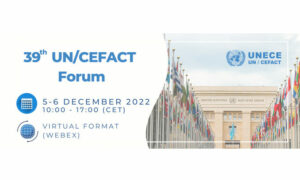
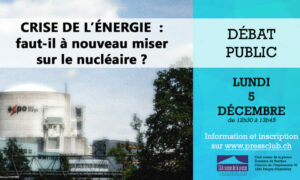
Conference
Crise de l’énergie : faut-il à nouveau miser sur le nucléaire?
05 Dec 2022 12:30 – 13:45
Domaine de Penthes & Online

Workshop
Workshop on Sustainable and Effective Substitutes and Alternatives For Plastics
06 Dec 2022 10:00 – 13:00
WTO | Room S1, S3 & Online
WTO, UNCTAD

Virtual
Virtual Launch of the Mixed Migration Review 2022
06 Dec 2022 15:00 – 17:00
Online | Zoom
Mixed Migration Centre

Conference
Urbanization & Climate Change: What challenges for the “Global south”?
06 Dec 2022 18:45 – 21:00
Forum Genève
Helvetas, Global Cities Hub - Geneva

Conference
Chemicals and Waste Negotiations Briefing
07 Dec 2022 10:00 – 12:00
International Environment House I & Online | Webex
GEN, UNEP Chemicals and Health Branch, BRS, Minamata Convention on Mercury, SAICM

Body Meeting
Dialogue on Plastics Pollution and Environmentally Sustainable Plastics Trade | Plenary Meeting
07 Dec 2022 10:00
WTO HQ
WTO
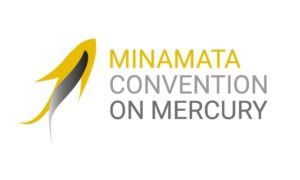
Virtual
Health Risk Communication | Minamata Online 3
07 Dec 2022 14:00 – 15:00
Online | Webex
Minamata Convention on Mercury

Local
Climat, sortir de l’inaction | A winning communication strategy for climate
07 Dec 2022 16:00 – 18:00
Uni Mail | Room M1130
Association Climat Genève

Virtual
Women Move Mountains in Adapting to Climate Change
08 Dec 2022 14:00 – 15:30
Online
Geneva Water Hub, Zoï Environment Network, UNIGE, IPU, Adaptation at Altitude
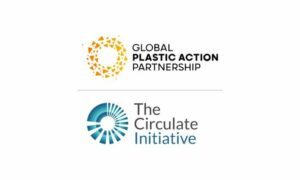
Virtual
Charting the Investment Opportunity in Plastics Circularity: Considerations for Financial Decision-makers and Investors
08 Dec 2022 15:00
Online | Zoom
GPAP
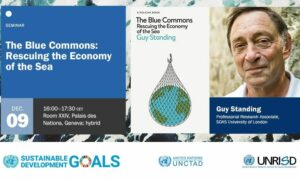
Conference
The Blue Commons: Rescuing the Economy of the Sea
09 Dec 2022 16:00 – 17:30
Palais des Nations, Room XXIV & Online
UNCTAD, UNRISD

Jobs
See all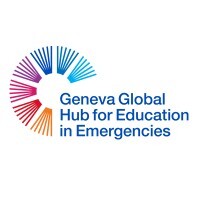
Consultant
Drafting the 2023 Geneva Global Hub for Education in Emergencies Flagship Report on climate change and education in emergencies
05 Dec 2022
Geneva Global Hub for Education in Emergencies

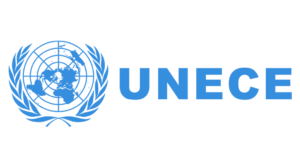

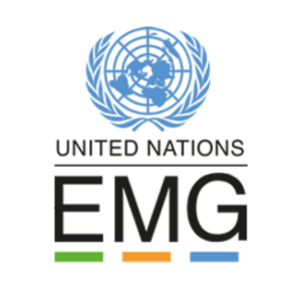





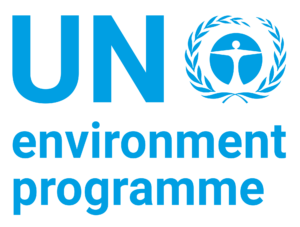
Consultant
Evaluation Consultant for Terminal Evaluation of the UNEP Project ” Sharing Experience and Knowledge for a Sustainable Belt and Road”
08 Dec 2022
UNEP Resources and Markets Branch


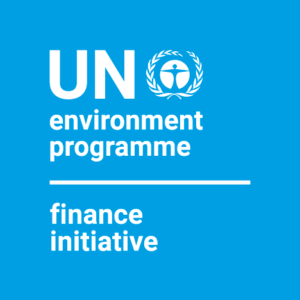

Updates
See all
18 Apr 2024
Human Rights and the Environment


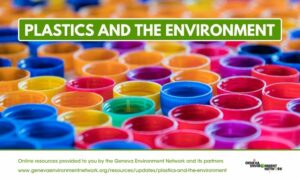
18 Apr 2024
Plastics and the Environment
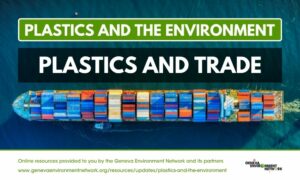

17 Apr 2024
